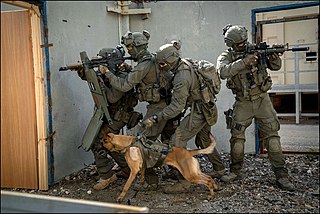The Aimaq, also transliterated as Aimak and Aymaq, are a collection of Persian-speaking Nomadic and semi-nomadic tribes. Aimaqs are found mostly in the West Central highlands of Afghanistan, immediately to the north of Herat, in Pakistan in the Kyber and Balochistan region and also to a much lesser amount in the Khorasan Province of Iran. They speak a number of subdialects of the Aimaq dialect of Persian, however some southern groups of Taymani and Maleki Aymaqs have adopted Pashto.

Iran, also called Persia and officially known as the Islamic Republic of Iran, is a country in Western Asia. With over 81 million inhabitants, Iran is the world's 18th most populous country. Comprising a land area of 1,648,195 km2 (636,372 sq mi), it is the second largest country in the Middle East and the 17th largest in the world. Iran is bordered to the northwest by Armenia and Azerbaijan, to the north by the Caspian Sea, to the northeast by Turkmenistan, to the east by Afghanistan and Pakistan, to the south by the Persian Gulf and the Gulf of Oman, and to the west by Turkey and Iraq. The country's central location in Eurasia and Western Asia, and its proximity to the Strait of Hormuz, give it geostrategic importance. Tehran is the country's capital and largest city, as well as its leading economic and cultural center.

Imam is an Islamic leadership position.

Industrial espionage, economic espionage, corporate spying or corporate espionage is a form of espionage conducted for commercial purposes instead of purely national security. Economic espionage is conducted or orchestrated by governments and is international in scope, while industrial or corporate espionage is more often national and occurs between companies or corporations.
Tajiks are a Persian-speaking Iranian ethnic group native to Afghanistan, Tajikistan, and Uzbekistan. Tajiks are the largest ethnicity in Tajikistan, and the second largest in Afghanistan which constitutes over half of the global Tajik population. They speak varieties of Persian, a Western Iranian language. In Tajikistan, since the 1939 Soviet census, its small Pamiri and Yaghnobi ethnic groups are included as Tajiks. In China, the term is used to refer to its Pamiri ethnic groups, the Tajiks of Xinjiang, who speak the Eastern Iranian Pamiri languages. In Afghanistan, the Pamiris are counted as a separate ethnic group.

Hegemony is the political, economic, or military predominance or control of one state over others. In ancient Greece, hegemony denoted the politico-military dominance of a city-state over other city-states. The dominant state is known as the hegemon.

Counter-terrorism incorporates the practice, military tactics, techniques, and strategy that government, military, law enforcement, business, and intelligence agencies use to combat or prevent terrorism. Counter-terrorism strategies include attempts to counter financing of terrorism.
Business intelligence (BI) comprises the strategies and technologies used by enterprises for the data analysis of business information. BI technologies provide historical, current and predictive views of business operations. Common functions of business intelligence technologies include reporting, online analytical processing, analytics, data mining, process mining, complex event processing, business performance management, benchmarking, text mining, predictive analytics and prescriptive analytics. BI technologies can handle large amounts of structured and sometimes unstructured data to help identify, develop and otherwise create new strategic business opportunities. They aim to allow for the easy interpretation of these big data. Identifying new opportunities and implementing an effective strategy based on insights can provide businesses with a competitive market advantage and long-term stability.

Comparative religion is the branch of the study of religions concerned with the systematic comparison of the doctrines and practices of the world's religions. In general the comparative study of religion yields a deeper understanding of the fundamental philosophical concerns of religion such as ethics, metaphysics, and the nature and forms of salvation. Studying such material is meant to give one a broadened and more sophisticated understanding of human beliefs and practices regarding the sacred, numinous, spiritual, and divine.

SAVAK was the secret police, domestic security and intelligence service of the Pahlavi dynasty. It was established by Iran's Mohammad Reza Shah with the help of the U.S. Central Intelligence Agency (CIA) and the Israeli MOSSAD. SAVAK operated from 1957 until the Iranian Revolution of 1979, when the prime minister Shapour Bakhtiar ordered its dissolution during the outbreak of Iranian Revolution. SAVAK has been described as Iran's "most hated and feared institution" prior to the revolution of 1979 because of its practice of torturing and executing opponents of the Pahlavi regime. At its peak, the organization had as many as 60,000 agents serving in its ranks according to one source, and another source by Gholam Reza Afkhami estimates SAVAK staffing at between 4,000 and 6,000.
A political system defines the process for making official government decisions. It is usually compared to the legal system, economic system, cultural system, and other social systems. However, this is a very simplified view of a much more complex system of categories involving the questions of who should have authority and what the government influence on its people and economy should.

The People's Mojahedin Organization of Iran or the Mojahedin-e Khalq is an Iranian political–militant organization based on Islamic and Socialist ideology and advocates overthrowing the Islamic Republic of Iran leadership and installing its own government. It was the "first Iranian organization to develop systematically a modern revolutionary interpretation of Islam – an interpretation that deferred sharply from both the old conservative Islam of the traditional clergy and the new populist version formulated in the 1970s by Ayatollah Khomeini and his government." The MEK is considered the Islamic Republic of Iran's biggest and most active political opposition group.

Michael Eugene Porter is an American academic known for his theories on economics, business strategy, and social causes. He is the Bishop William Lawrence University Professor at Harvard Business School, and he was one of the founders of the consulting firm The Monitor Group and FSG, a social impact consultancy.
A strategist is a person with responsibility for the formulation and implementation of a strategy. Strategy generally involves setting goals, determining actions to achieve the goals, and mobilizing resources to execute the actions. A strategy describes how the ends (goals) will be achieved by the means (resources). The senior leadership of an organization is generally tasked with determining strategy. Strategy can be intended or can emerge as a pattern of activity as the organization adapts to its environment or competes. It involves activities such as strategic planning and strategic thinking.
Cyberwarfare is the use or targeting in a battlespace or warfare context of computers, online control systems and networks. It involves both offensive and defensive operations pertaining to the threat of cyberattacks, espionage and sabotage. There has been controversy over whether such operations can be called "war". Nevertheless, powers have been developing cyber capabilities and engaged in cyberwarfare, both offensively and defensively, including the United States, China, Russia, Israel and the United Kingdom. Two other notable players are Iran and North Korea.

The Institute for Defense Analyses (IDA) is an American non-profit corporation that administers three federally funded research and development centers (FFRDCs) – the Systems and Analyses Center (SAC), the Science and Technology Policy Institute (STPI), and the Center for Communications and Computing (C&C) – to assist the United States government in addressing national security issues, particularly those requiring scientific and technical expertise. It is headquartered in Alexandria, Virginia.
Cultural intelligence or cultural quotient (CQ) is a term used in business, education, government and academic research. Cultural intelligence can be understood as the capability to relate and work effectively across cultures. Originally, the term cultural intelligence and the abbreviation "CQ" was developed by the research done by Soon Ang and Linn Van Dyne as a researched-based way of measuring and predicting intercultural performance.
Project Socrates was a classified U.S. Defense Intelligence Agency program established in 1983 within the Reagan administration. It was founded and directed by physicist Michael C. Sekora to determine why the United States was unable to maintain economic competitiveness—and to rectify the situation.
Kathleen M. Carley is an American social scientist specializing in dynamic network analysis. She is a professor in the School of Computer Science in the Institute for Software Research International at Carnegie Mellon University and also holds appointments in the Tepper School of Business, the Heinz College, the Department of Engineering and Public Policy, and the Department of Social and Decision Sciences.











